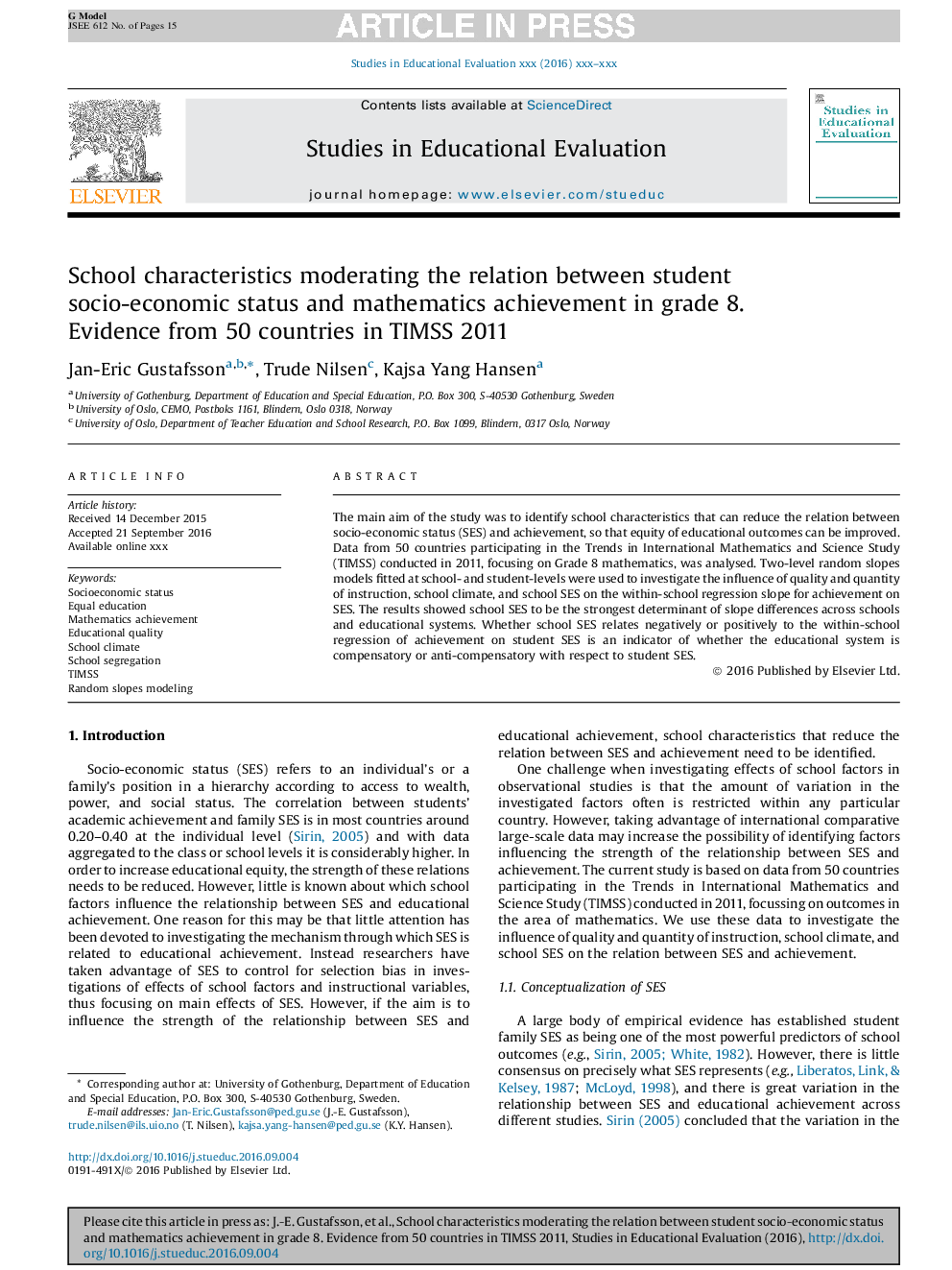| Article ID | Journal | Published Year | Pages | File Type |
|---|---|---|---|---|
| 6849021 | Studies in Educational Evaluation | 2018 | 15 Pages |
Abstract
The main aim of the study was to identify school characteristics that can reduce the relation between socio-economic status (SES) and achievement, so that equity of educational outcomes can be improved. Data from 50 countries participating in the Trends in International Mathematics and Science Study (TIMSS) conducted in 2011, focusing on Grade 8 mathematics, was analysed. Two-level random slopes models fitted at school- and student-levels were used to investigate the influence of quality and quantity of instruction, school climate, and school SES on the within-school regression slope for achievement on SES. The results showed school SES to be the strongest determinant of slope differences across schools and educational systems. Whether school SES relates negatively or positively to the within-school regression of achievement on student SES is an indicator of whether the educational system is compensatory or anti-compensatory with respect to student SES.
Keywords
Related Topics
Social Sciences and Humanities
Social Sciences
Education
Authors
Jan-Eric Gustafsson, Trude Nilsen, Kajsa Yang Hansen,
